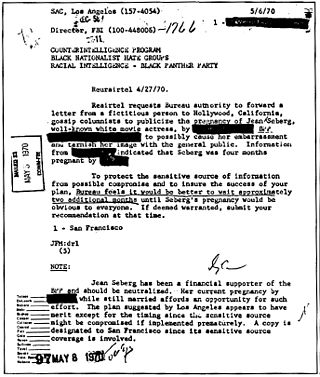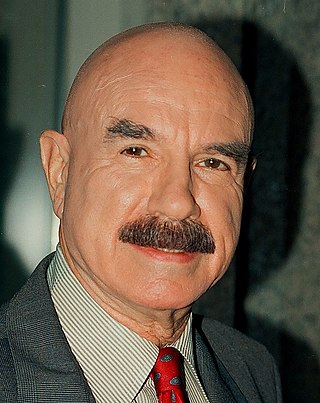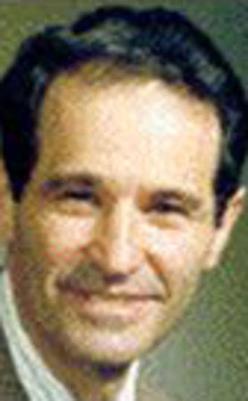
COINTELPRO was a series of covert and illegal projects conducted between 1956 and 1971 by the United States Federal Bureau of Investigation (FBI) aimed at surveilling, infiltrating, discrediting, and disrupting American political organizations that the FBI perceived as subversive. Groups and individuals targeted by the FBI included feminist organizations, the Communist Party USA, anti–Vietnam War organizers, activists in the civil rights and Black power movements, environmentalist and animal rights organizations, the American Indian Movement (AIM), Chicano and Mexican-American groups like the Brown Berets and the United Farm Workers, independence movements, a variety of organizations that were part of the broader New Left, and white supremacist groups such as the Ku Klux Klan and the National States' Rights Party.

The Federal Bureau of Investigation (FBI) is the domestic intelligence and security service of the United States and its principal federal law enforcement agency. An agency of the United States Department of Justice, the FBI is also a member of the U.S. Intelligence Community and reports to both the Attorney General and the Director of National Intelligence. A leading U.S. counterterrorism, counterintelligence, and criminal investigative organization, the FBI has jurisdiction over violations of more than 200 categories of federal crimes.

John Edgar Hoover was an American law-enforcement administrator who served as the final Director of the Bureau of Investigation (BOI) and the first Director of the Federal Bureau of Investigation (FBI). President Calvin Coolidge first appointed Hoover as director of the BOI, the predecessor to the FBI, in 1924. After 11 years in the post, Hoover became instrumental in founding the FBI in June 1935, where he remained as director for an additional 37 years until his death in May 1972 – serving a total of 48 years leading both the BOI and the FBI and under eight Presidents.

The Watergate scandal was a major political scandal in the United States involving the administration of President Richard Nixon from 1972 to 1974 that led to Nixon's resignation. The scandal stemmed from the Nixon administration's attempts to cover up its involvement in the June 17, 1972, break-in of the Democratic National Committee headquarters in Washington, D.C., at the Watergate Office Building.

Jean Dorothy Seberg was an American actress. She is considered an icon of the French New Wave as a result of her performance in Jean-Luc Godard's 1960 film Breathless.

George Gordon Battle Liddy was an American lawyer, criminal and FBI agent who was convicted of conspiracy, burglary, and illegal wiretapping for his role in the Watergate scandal during the Nixon administration.

Black bag operations or black bag jobs are covert or clandestine entries into structures to obtain information for human intelligence operations.

William Mark Felt Sr. was an American law enforcement officer who worked for the Federal Bureau of Investigation (FBI) from 1942 to 1973 and was known for his role in the Watergate scandal. Felt was an FBI special agent who eventually rose to the position of Deputy Director, the Bureau's second-highest-ranking post. Felt worked in several FBI field offices prior to his promotion to the Bureau's headquarters. In 1980, he was convicted of having violated the civil rights of people thought to be associated with members of the Weather Underground, by ordering FBI agents to break into their homes and search the premises as part of an attempt to prevent bombings. He was ordered to pay a fine, but was pardoned by President Ronald Reagan during his appeal.

William Cornelius Sullivan was an assistant director of the Federal Bureau of Investigation who was in charge of the agency's domestic intelligence operations from 1961 to 1971. Sullivan was forced out of the FBI at the end of September 1971 due to disagreements with FBI director J. Edgar Hoover. The following year, Sullivan was appointed as the head of the Justice Department's new Office of National Narcotics Intelligence, which he led from June 1972 to July 1973. Sullivan died in a hunting accident in 1977. His memoir of his thirty-year career in the FBI, written with journalist Bill Brown, was published posthumously by commercial publisher W. W. Norton & Company in 1979.

The Watergate scandal refers to the burglary and illegal wiretapping of the headquarters of the Democratic National Committee, in the Watergate complex by members of President Richard Nixon's re-election campaign, and the subsequent cover-up of the break-in resulting in Nixon's resignation on August 9, 1974, as well as other abuses of power by the Nixon White House that were discovered during the course of the scandal.

The Citizens' Commission to Investigate the FBI was an activist group operational in the US during the early 1970s. Their only known action was breaking into a two-man Media, Pennsylvania, office of the Federal Bureau of Investigation (FBI) and stealing over 1,000 classified documents. They then mailed these documents anonymously to several US newspapers to expose numerous illegal FBI operations which were infringing on the First Amendment rights of American citizens. Most news outlets initially refused to publish the information, saying it related to ongoing operations and that disclosure might have threatened the lives of agents or informants. However, The Washington Post, after affirming the veracity of the files which the Commission sent them, ran a front-page story on March 24, 1971, at which point other media organizations followed suit.

The Camden 28 were a group of leftist, Catholic, anti-Vietnam War activists who in 1971 planned and executed a raid on a draft board in Camden, New Jersey, United States. The raid resulted in a high-profile criminal trial of the activists that was seen by many as a referendum on the Vietnam War and as an example of jury nullification.

Laura Poitras is an American director and producer of documentary films.
The Bling Ring was a group of seven teenagers and young adults based in and around Calabasas, California, convicted of multiple thefts.

The origins of global surveillance can be traced back to the late 1940s, when the UKUSA Agreement was jointly enacted by the United Kingdom and the United States, whose close cooperation eventually culminated in the creation of the global surveillance network, code-named "ECHELON", in 1971.

William Cooper Davidon was an American professor of physics and mathematics, and a peace activist. As the mastermind of the March 8, 1971, FBI office break-in, in Media, Pennsylvania, Davidon was the informal leader of the Citizens' Commission to Investigate the FBI. The Media break-in resulted in the disclosure of COINTELPRO, which in turn led to subsequent investigations and reforms of the FBI.
John Curtis Raines was an American professor, activist, and whistleblower. He was a member of the Citizens' Commission to Investigate the FBI, which stole documents from an FBI office and exposed illegal activity and abuses of power, including COINTELPRO.

The FBI–King suicide letter or blackmail package was an anonymous 1964 letter and package by the Federal Bureau of Investigation (FBI) meant to blackmail Martin Luther King Jr. The letter was part of the FBI's COINTELPRO operation against King. Although it is referred to as the "suicide letter" as King interpreted that to be its intent, the letter does not explicitly call for King to kill himself.
Joyce Haber (1931–1993) was an American gossip columnist who worked for the Los Angeles Times.
Betty Medsger is an author and investigative reporter. Medsger is the author of several books, including The Burglary: The Discovery of J. Edgar Hoover's Secret FBI. Medsger was instrumental in uncovering the work of COINTELPRO and secret activities by the FBI. She is the former chair of the Department of Journalism and Professor Emerita at San Francisco State University.















